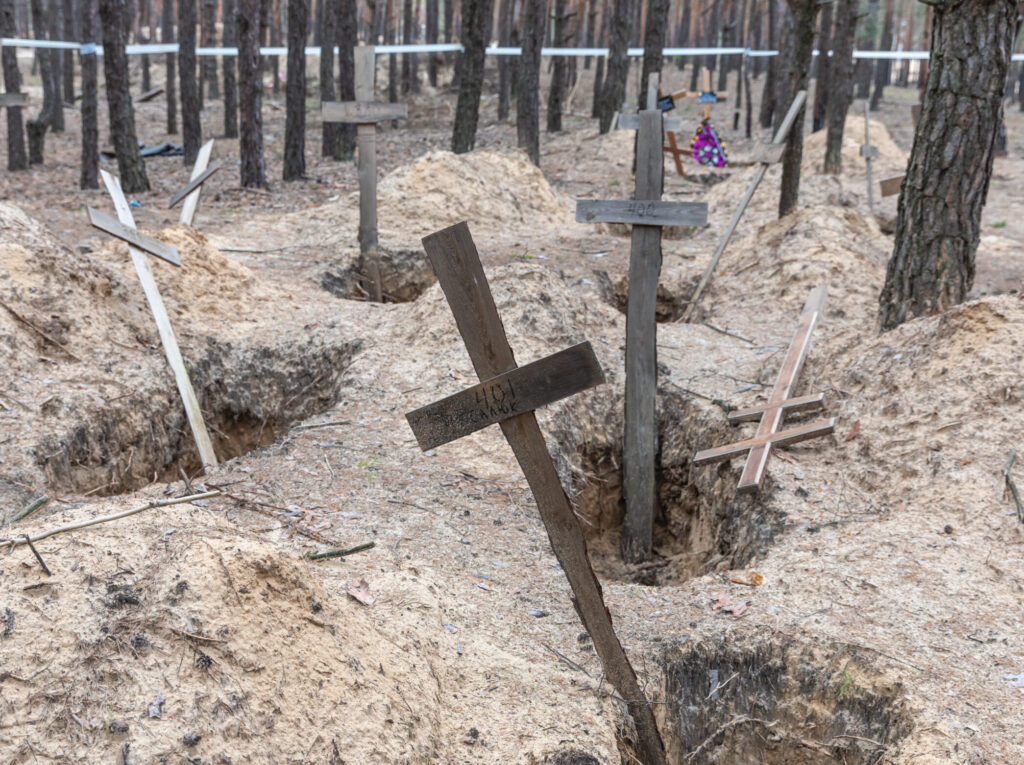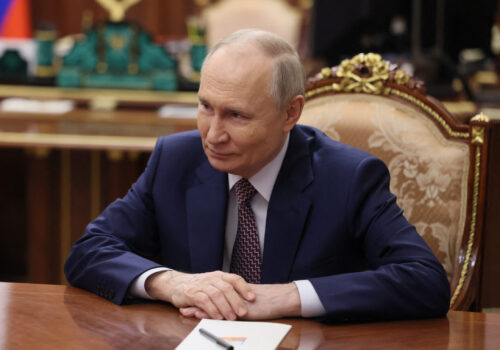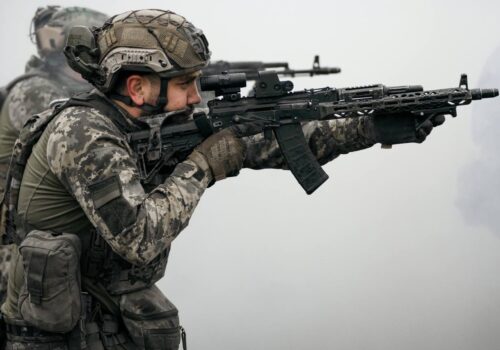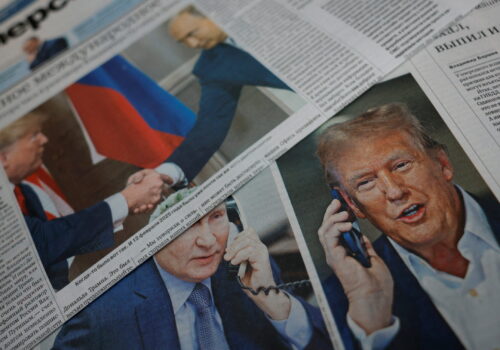A United Nations probe has concluded that Russia is guilty of committing crimes against humanity in the occupied regions of Ukraine. The investigation focused on the Kremlin’s large-scale program of detentions and deportations targeting Ukrainian civilians living under Russian occupation, and confirms earlier reports regarding the terror tactics being employed by Putin’s invasion force.
The March 19 report by the UN’s Independent International Commission of Inquiry on Ukraine found that “the enforced disappearances against civilians were perpetrated pursuant to a coordinated state policy and amount to crimes against humanity.” The report details a climate of lawlessness throughout Russian-occupied Ukraine, with anyone viewed as a potential threat to the occupation authorities liable to be detained before disappearing into a network of detention facilities in the occupied regions or deported to the Russian Federation.
Similar evidence of mass detentions was uncovered throughout all the regions of Ukraine currently under Kremlin control, indicating what UN officials referred to as a “systematic attack against the civilian population.” Victims included local officials, journalists, civic activists, military veterans, and religious leaders. While exact figures are unknown, the UN report states that large numbers of Ukrainian civilians have been targeted in a “widespread and systematic manner.”
Stay updated
As the world watches the Russian invasion of Ukraine unfold, UkraineAlert delivers the best Atlantic Council expert insight and analysis on Ukraine twice a week directly to your inbox.
The war crimes accusations leveled against the Russian authorities in occupied Ukraine extend far beyond the detentions highlighted by UN investigators. The most widely publicized charges relate to the mass abduction and ideological indoctrination of vulnerable Ukrainian children. Russia is believed to have kidnapped tens of thousands of young Ukrainians and placed them in camps or foster homes, where they are often subjected to brainwashing programs designed to rob them of their Ukrainian identity and transform them into Russians. In March 2023, the International Criminal Court in The Hague issued an arrest warrant for Russian President Vladimir Putin for his role in these mass abductions.
Throughout Russian-occupied Ukraine, the authorities are working methodically to remove all symbols of Ukrainian statehood and erase any traces of Ukrainian national identity. The Ukrainian language has been suppressed along with Ukrainian literature, history, and cultural heritage. Schools now teach a Kremlin-approved curriculum that glorifies Russian imperialism while demonizing Ukraine. Any parents who attempt to resist the indoctrination of their children risk losing custody.
Ukrainians living under Russian occupation are being pressured into accepting Russian citizenship. Those who refuse to take Russian passports are denied access to basic services such as healthcare and pensions, and are unable to register their property with the occupation authorities. This so-called passportization campaign recently entered a new phase, with the Kremlin announcing that anyone who fails to acquire Russian citizenship within the next six months will be subject to potential deportation from their own homes.
Eurasia Center events

Fears over the future fate of Ukrainians in occupied regions of the country were heightened recently by US Special Envoy Steve Witkoff’s apparent endorsement of sham referendums staged by the Kremlin in 2022 to justify the seizure of Ukrainian lands. “There have been referendums where the overwhelming majority of the people have indicated that they want to be under Russian rule,” he told Tucker Carlson in an interview that set off alarm bells across Europe.
The furor over Witkoff’s comments was hardly surprising. Russia’s fig leaf referendums in occupied Ukraine had been roundly rejected at the time by the vast majority of the international community, including many of Russia’s traditional supporters. “The United States will never recognize these illegal attempts to seize territory that does not belong to Russia,” the US State Department declared.
The September 2022 ballots lacked even a basic semblance of legitimacy, with voting taking place at gunpoint. Indeed, in many instances, the captive population were visited in their homes by election officials accompanied by armed soldiers. Such Kafkaesque scenes are nothing new for the Kremlin, which has been staging similarly farcical “referendums” to justify acts of international aggression since the Stalin era. Prior to Witkoff, however, no senior Western official had attempted to offer their stamp of approval.
The new UN report detailing Russian crimes against humanity in occupied Ukraine is particularly timely. Peace talks initiated by US President Donald Trump in recent weeks have focused largely on the possible partition of Ukraine, with negotiating teams working to determine potential boundaries. But while Trump talks of “dividing up the lands,” millions of lives are also at stake. It is therefore crucial to highlight the horrors unfolding in Russian-occupied Ukraine and the crimes being committed by the Kremlin. While it may not be militarily feasible to liberate these regions at present, safeguarding the basic human rights of Ukrainian residents living under Russian occupation should be an important aspect of any negotiated settlement.
Peter Dickinson is editor of the Atlantic Council’s UkraineAlert service.
Further reading
The views expressed in UkraineAlert are solely those of the authors and do not necessarily reflect the views of the Atlantic Council, its staff, or its supporters.

The Eurasia Center’s mission is to enhance transatlantic cooperation in promoting stability, democratic values, and prosperity in Eurasia, from Eastern Europe and Turkey in the West to the Caucasus, Russia, and Central Asia in the East.
Follow us on social media
and support our work
Image: Crosses are seen at a forest grave site after an exhumation in the town of Izium, recently liberated by Ukrainian forces, in the Kharkiv region. Izyum in the Kharkiv region of Ukraine, six months after the Russian army withdrew. Although the town is no longer under fire, there is still a high risk of explosions due to the presence of mines, tripwires and unexploded ordnance. Izyum was liberated on 10 September 2022 during a counter-offensive by the Ukrainian Armed Forces, but the town has been badly damaged by Russian shelling and occupation, with 80% of the buildings damaged. Mass graves of Ukrainian civilians and soldiers, including signs of torture, have also been discovered in the area. (Photo by Mykhaylo Palinchak / SOPA Images/Sipa USA)





